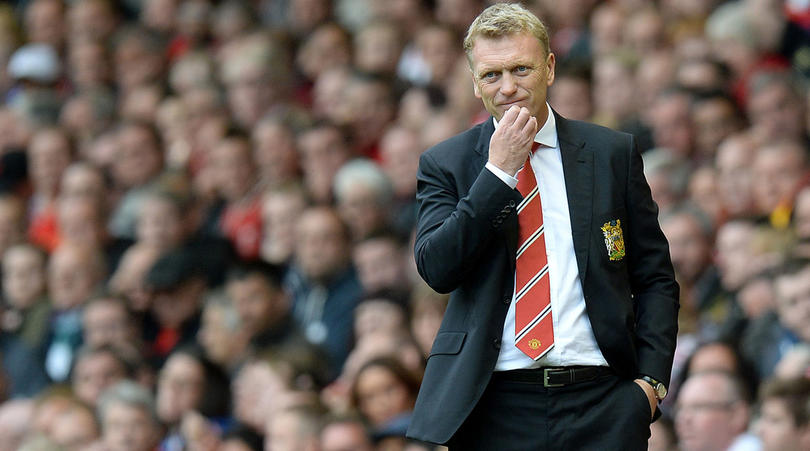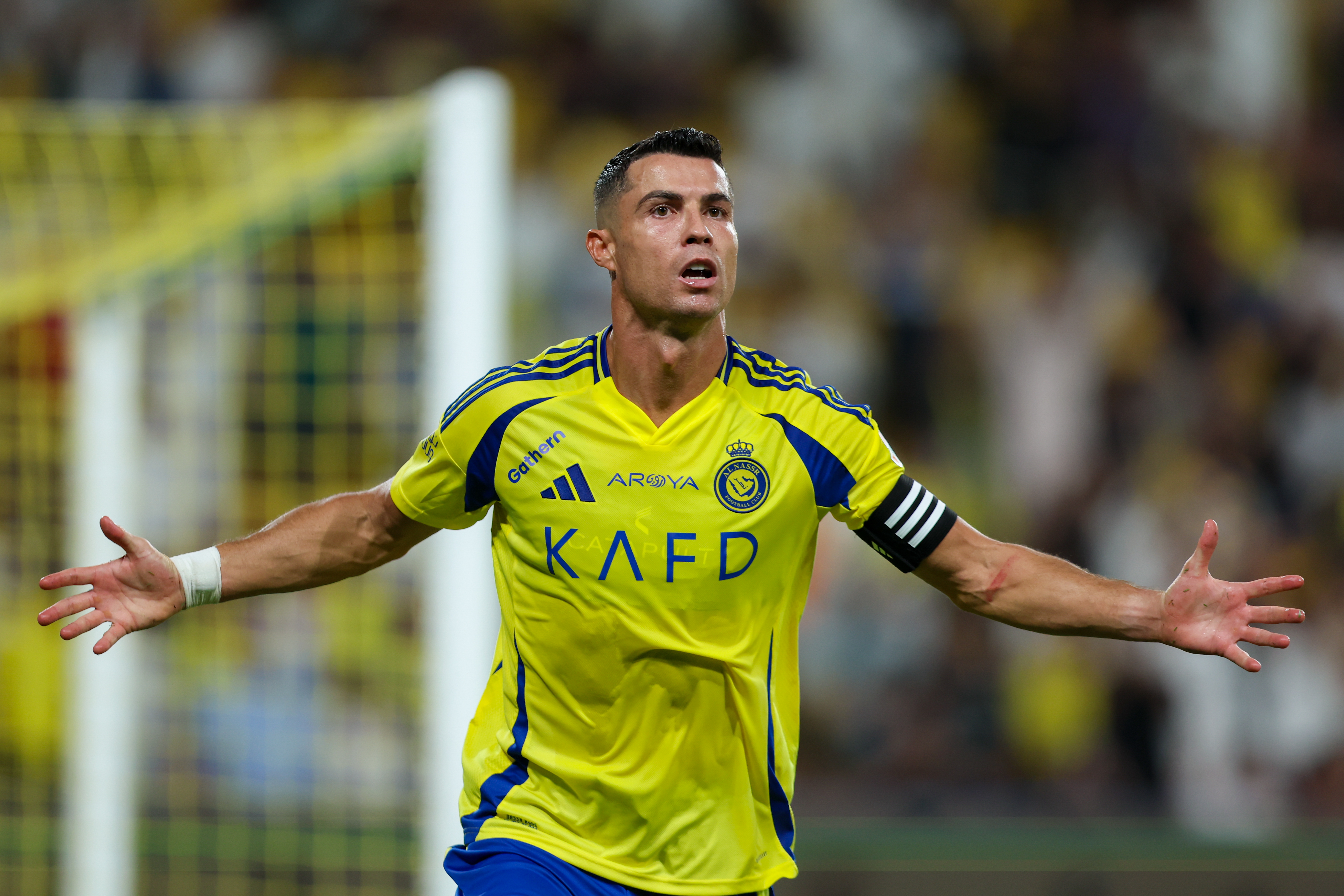Following legends, rebuilding empires: how Unai Emery became the anti-Moyes at Arsenal
If the initial contract he was handed by Manchester United had been seen out, David Moyes would be leading his team out against Unai Emery’s Arsenal this weekend. Now, both clubs still appear to be in transition – but which has a brighter future?
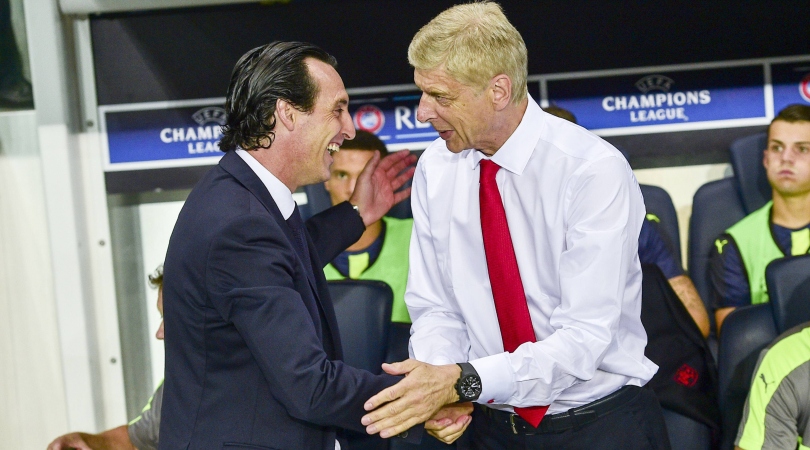
Perhaps it was fitting that it was the first game after a reign ended; a match notable for who wasn't in charge. In November 2015, Sevilla beat Real Sociedad 2-0. The victors were still Unai Emery’s Sevilla. The losers, until 12 days earlier, had been David Moyes’s Sociedad, before his second (and far less famous) sacking followed.
Arsenal against Manchester United on Sunday presents a match which could have been Emery against Moyes. The latter’s infamous six-year contract at Old Trafford, after all, was due to expire this summer.
They are the two managers united by a shared predicament: replacing a legend. Each is defined in the job by not being his predecessor; each is forever destined to be viewed in the context of a colossus. Emery is not Arsene Wenger at Arsenal. Moyes was not Sir Alex Ferguson at Manchester United. If, in the Spaniard’s case, that is welcomed by some, it wasn't in the Scot’s.
After the emperors
They were hired to replace the last great emperors of English football. Theirs are tasks that come with a certain acceptance of inferiority: the next incumbent would not last two decades, win a record 13 league titles, as Ferguson did, or a record seven FA Cups, like Wenger. If Moyes was intimidated by the prospect, Emery has at least appeared energised.
Because if Arsenal’s first managerial appointment since 1996 was charged with being both the new Wenger and a reaction to the end-of-era Frenchman, Emery has succeeded in a different respect: he is proving the anti-Moyes.
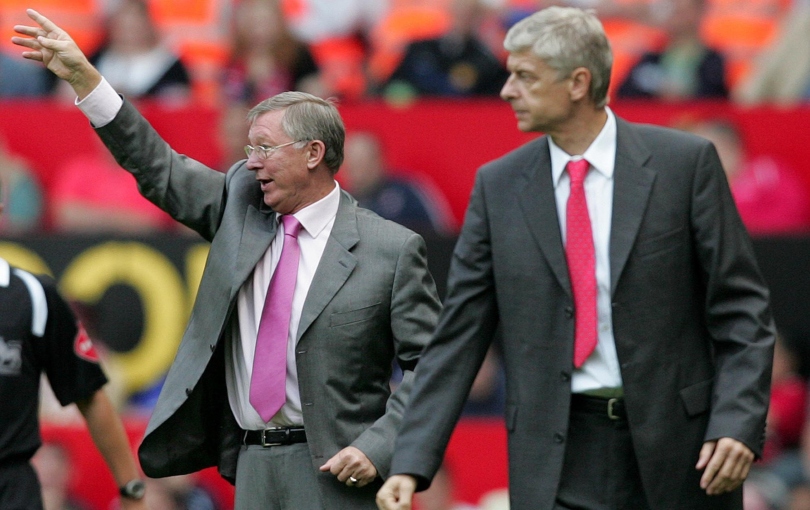
United suffered a steep decline under Moyes, whereas Arsenal’s map under Emery has been more undulating, with peaks – including a 22-game unbeaten run – to accompany the troughs. It's hard to forge definitive conclusions just yet.
Get FourFourTwo Newsletter
The best features, fun and footballing quizzes, straight to your inbox every week.
Such were Moyes’s troubles that it was comparatively easy to reach them five years ago: United ended 2013/14 with 25 fewer points and 22 fewer goals than in Ferguson’s final year. They slipped from first to seventh. They found different, but equally embarrassing, ways of getting knocked out of both domestic cups, by Swansea and Sunderland. They accumulated historic home defeats: to West Brom, Everton, Newcastle and Swansea. They recorded a solitary league win against elite opponents – inevitably, Wenger’s Arsenal.
In that respect, Emery may have benefited from taking over at a lower base. His Arsenal are on course to register more points and goals than Wenger’s final team. They have already topped both tallies on the road. They are a place higher than Wenger’s last and lowest finish and, realistically, can't end up below sixth.
Stats and sensibility
Yet the differences extend from the statistics to the style of regime. Moyes was trapped in his tactical straitjacket, forever playing 4-4-1-1, his predictable side witlessly directing 81 crosses at Fulham’s supersized centre-back Dan Burn.
If Moyes had too few ideas, maybe Emery has had too many. Yet his experiments have intrigued and some have been successful. He has played three at the back, and four; one up front or two; anything from one to three defensive midfielders. Aaron Ramsey has been integral at times and a replacement at others; so too, Alexandre Lacazette and Pierre-Emerick Aubameyang.
While Moyes omitted Ryan Giggs and, at times, Rio Ferdinand, there was the sense he lacked the courage of his convictions. Emery has taken on Mesut Ozil. He hasn't looked cowed by big names or big salaries. He hasn't tried to keep a new club in the past, perhaps aided by the reality that it had failed the previous season. There was less worth preserving. The remit for change was greater.
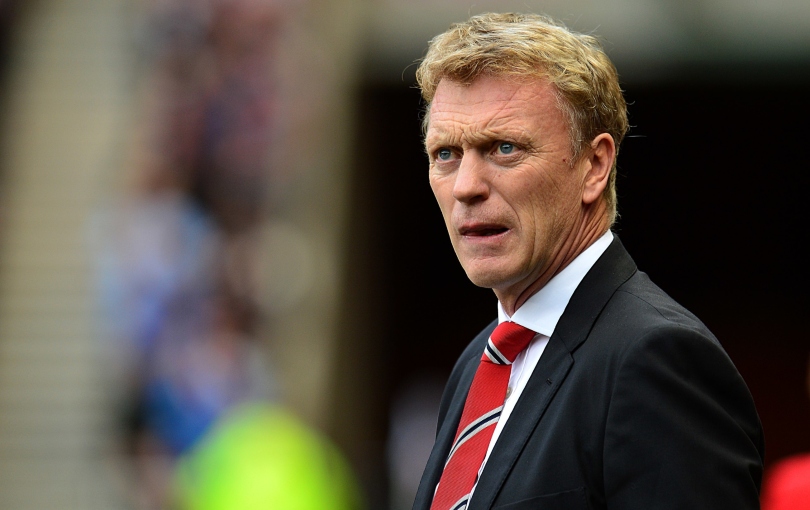
Instead, he has offered more of a futuristic look. Some of the encouragement Arsenal can derive from this campaign comes from young players: in Rob Holding, Alex Iwobi, Matteo Guendouzi and Lucas Torreira.
Moyes had a solitary youthful triumph, in Adnan Januzaj, and even then the Belgian’s subsequent fortunes make it feel illusory. Typically for a man who felt both luckless and hapless, there was no real positive legacy. He was denied most of his preferred signings and those he did get, Marouane Fellaini and Juan Mata, felt like misfits then and delivered more for his replacements. He left Louis van Gaal the ticking time bomb of an ageing, departing defence, whereas Emery can point to two departments of Arsenal's side – in goal and the centre of midfield – where he has executed an overhaul.
If Moyes’s was a season of regression, Emery’s debut year has at least been one of transition – and not the transition from champions to also-rans.
RECOMMENDED Overpaid and underplayed: what Mesut Ozil and Alexis Sanchez tell us about football’s market problem
Long shadows
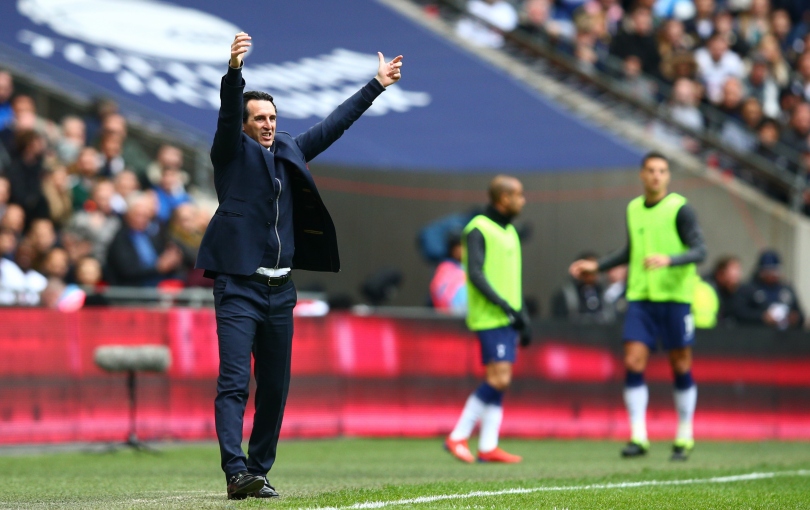
If it's the Scot’s misfortune that he represents a cautionary tale – an object lesson in how to turn a dynasty into a disaster – he was burdened by expectations inflated by Ferguson’s genius. His inheritance was worse than most acknowledged at the time whereas, by persevering with Wenger for a year too far, Arsenal laid bare their problems and meant many supporters afforded Emery more patience.
Yet while Ferguson and Wenger’s old clubs meet with them separated by a solitary point, ambitions have been downgraded from the heyday of their epic rivalry: serial champions then are competing for a Champions League place now.
Giants leave long shadows and, almost six years since Sir Alex’s retirement, Manchester United haven't mounted a proper title challenge in the post-Ferguson era. If there was a theory, even before Moyes’s failure, that it was better to be the man who replaced the man who replaced Ferguson – albeit one Van Gaal scarcely supported in his baffling reign – time will tell if the same is true at Arsenal.
Is it better to be Emery, taking over from Wenger, or the manager who eventually comes in after the Spaniard’s rebuilding job?
NOW READ… The long way round: How Unai Emery became a self-made obsessive – and Arsenal's chosen one
New features you’d love on FourFourTwo.com
Richard Jolly also writes for the National, the Guardian, the Observer, the Straits Times, the Independent, Sporting Life, Football 365 and the Blizzard. He has written for the FourFourTwo website since 2018 and for the magazine in the 1990s and the 2020s, but not in between. He has covered 1500+ games and remembers a disturbing number of the 0-0 draws.
